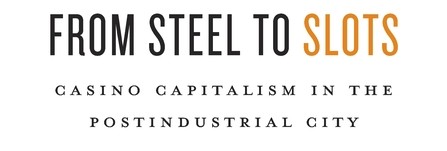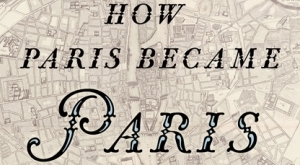Chloe E. Taft explores the transition of Bethlehem, Pa., from Rust Belt company town to gambling mecca.
Columbus Bucks Trends, Grows Steadily
Smack in the buckle of the Rust Belt, Columbus, Ohio, has managed to avoid some of the hard times that have befallen its neighbors.
Top 10 Books – 2016
Planetizen is pleased to release its list of the ten best books in urban planning, design, and development published in 2015.
Atlanta Has Plans to Lead the New South
The latest installment of the Planners Across America series interviews Charletta Wilson-Jacks, director of the Atlanta Office of Planning, who focused on new strategies to engage community members in the city’s planning efforts.
Planners Across America: Philadelphia on the Rebound
Garry Jastrzab, executive director of the Philadelphia Planning Commission, explains how a new comprehensive plan and a focus on the public realm guide the city as it searches for a balance between the old with the new.
Crises and Innovation Converge on San Francisco Planning Director John Rahaim’s Watch
The latest installment of the Planners Across America series interviews John Rahaim, planning director for the City and County of San Francisco, about the heightened passions and perpetual controversies of planning in the City by the Bay.
Planners Across America: Josh Whitehead Helps Memphis Live Within Limits
Josh Whitehead, planning director of the Memphis and Shelby County Office of Planning & Development (OPD), discusses competing with suburbs, implementing a new zoning code, and redeveloping, for a second time, historic streetcar corridors.
Planners Across America: Brad Buchanan Shepherds Denver’s Explosive Growth
In this interview for the “Planners Across America” series, Denver Planning Director Brad Buchanan details Denver’s efforts to reactivate the urban core with strong planning, transit investments, and new residential and commercial developments.
Book Review: ‘City by City’
Tortorici writes like Joan Didion’s cloying little sister, drawing monumental conclusions from vast stores of hearsay, personal experiences, and idle speculation.
Book Review: ‘Robert Moses: Master Builder of New York City’
It’s an odd feeling to see a historical figure represented visually, with his carriage, mannerisms, and emotions on display, often, in Moses’ case, with a beatific look of self-satisfaction.
Book Review: ‘Culture Crash’
‘Culture Crash: The Killing of the Creative Class’ by Scott Timberg argues that cities must defend and support local culture in the face of the homogenizing effects of the creative class.
Top 10 Books – 2015
Planetizen is pleased to release its list of the ten best books in urban planning, design, and development published in 2014.
Explaining the Country’s Worst Rental Market
Surely, homeowners are entitled to worry about traffic, sight lines, city services, and all the rest. What I suspect, though, is that many homeowners really want to do is what any rational, self-interested actor would want when he or show owns a valuable asset. They want to constrain supply.
Planetizen’s Interchange Blog
Josh is a featured blogger on Planetizen.com, the online home of the world’s urban planning community.
Book Review: ‘How Paris Became Paris’
Anyone who writes about Paris naturally gets to draft off the city’s grandeur, so DeJean has an unfair advantage. Even so, she impressively achieves her goal: to explain Paris—specifically the extraordinary developments of the 1600s—without demystifying it.
The Original Big Digs
The gridlock in American cities today doesn’t compare to the crush on streets in Boston and New York City in the mid- to late-1800s. In The Race Underground, Doug Most chronicles the occasionally synchronous development of the nation’s first subways.
Top 10 Books – 2014
History of Future Cities is either a history book with an incredible urban sensibility or an urban book with an impressive grasp of history.
The Chemistry of Safer, Denser Cities
Reporter Kevin Drum recently revealed lead for what it was: one of the keys to the epidemic of American crime and violence that ruined our cities in the mid-20th century.



